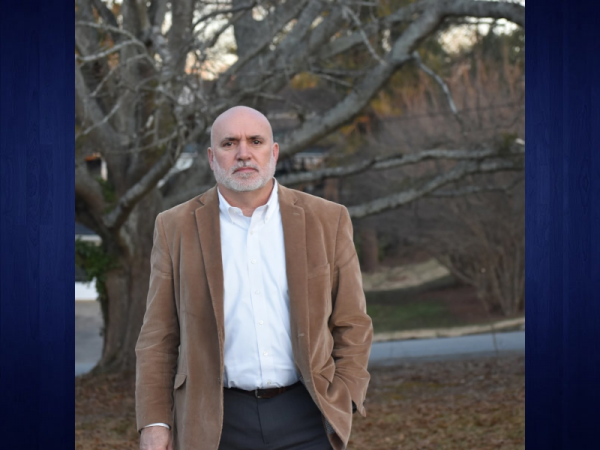ATLANTA - The Georgia State Court of Appeals has upheld a lower court decision that the choice to end a loved one's life should be left to family members, not hospitals.
The ruling also declares that the state's two-year statute of limitations on wrongful death claims does not apply to children.
The appellate court decision addresses the case of a teenage mother who was taken off life support days after giving birth to her premature son while she was in a coma.
Nonnie Hawkins, the mother of Tara Bottoms-Hawkins, sued DeKalb Medical Center in May 2006 on behalf of her grandson, Emmanuel. Against the urging of doctors, she said she never gave consent for the hospital to take her daughter off life support.
Instead, Hawkins waited 114 days for her daughter to wake up from her coma and bring her son into the world. Bottoms-Hawkins spontaneously delivered Emmanuel, who was born weighing less than three pounds, from her hospital bed at DeKalb Medical Center.
The 18-year-old college freshman never regained consciousness. Two days later, she was taken off of life support. No family member consented to ending her life.
"I knew at the time what they did was unjust and I felt helpless," Hawkins said Saturday. "It was like watching someone kill your child and there's nothing you could do about it. I pray that no other family has to endure this type of heartache and unjust pain.
Hawkins' attorney, John Crongeyer, said the Nov. 29 ruling underscores the fact that termination of life decisions belong to families.
"All along, she contended that they didn't have a right to do this," Crongeyer said. "You can't just take a life in Georgia without consent or a court order, but that's what happened here."
Bottoms-Hawkins helped her mother run a ministry for the homeless, prisoners and nursing home residents. In August 2003, she met Stephen Davis - a homeless boy who was living with friends of hers - and tried to help him, finding him clothes and inviting him to her home for dinner.
Three months later, Davis assaulted Bottoms-Hawkins, who was three months pregnant. The attack left her in a coma.
For 16 weeks, Bottoms-Hawkins remained comatose while her son, Emmanuel, grew inside her womb. Doctors tried to persuade Hawkins to end the pregnancy, warning her that Emmanuel could be severely deformed or stillborn.
The doctors told Hawkins that her daughter was brain dead, and that she and her unborn son should be taken off life support. Her mother refused to consent to either.
Emmanuel was born three months premature and he wasn't expected to survive the night. He was hospitalized for 10 weeks with medical problems including a bacterial infection and low blood pressure, and he had eye and heart surgery.
Bottoms-Hawkins was removed from life support two days after giving birth to Emmanuel, despite the fact that her prognosis hadn't changed: She was not terminally ill, her death was not imminent and her brain function had not deteriorated. She died the same day, on March 18, 2004.
More than two years later, on May 15, 2006, Hawkins filed a lawsuit on Emmanuel's behalf against the hospital, doctor, and DeKalb Neurology Associates, asserting medical malpractice and negligence in the treatment of her daughter and her grandson. She also claimed the hospital unlawfully terminated her daughter's life without her consent.
The hospital countered that Hawkins was too late, citing a two-year statute of limitation on medical malpractice claims.
The appellate court decision explained that under Georgia law, "the decision of whether to continue or terminate life support for an incompetent adult patient who did not have a living will and who has no reasonable possibility of regaining cognitive functions belongs exclusively to the patient's family or legal guardian, not to the hospital, the patient's physicians, or the state."
The court went on to say that Emmanuel's minor status nullifies the statute of limitation for filing a wrongful death claim on his mother's behalf.
Phone and e-mail messages left with a hospital spokesman Sunday seeking comment on the appellate ruling were not immediately returned.
Crongeyer said that the ruling recognizes that there are important exceptions to the two-year rule for filing wrongful death claims, and that children fall under that category.
"They have more time under the law to file," he said. "Children don't have the same capacity to understand or pursue their rights as adults.
Hawkins now plans to head back to the courts on behalf of her daughter and grandson. The case will go to trial, though her day in court is still many months away.
Davis pleaded guilty to involuntary manslaughter and was sentenced to three years in prison and three years' probation.
On March 16, Emmanuel celebrated his third birthday, and he is being raised by his grandmother. Hawkins speaks to teens about preventing violence.
"God has healed me, but kids are not aware something could happen to them," Hawkins said.
-----
On the Net: Tara's Love: http://www.taraslove101.com
Thursday
July 3rd, 2025
11:36AM

















